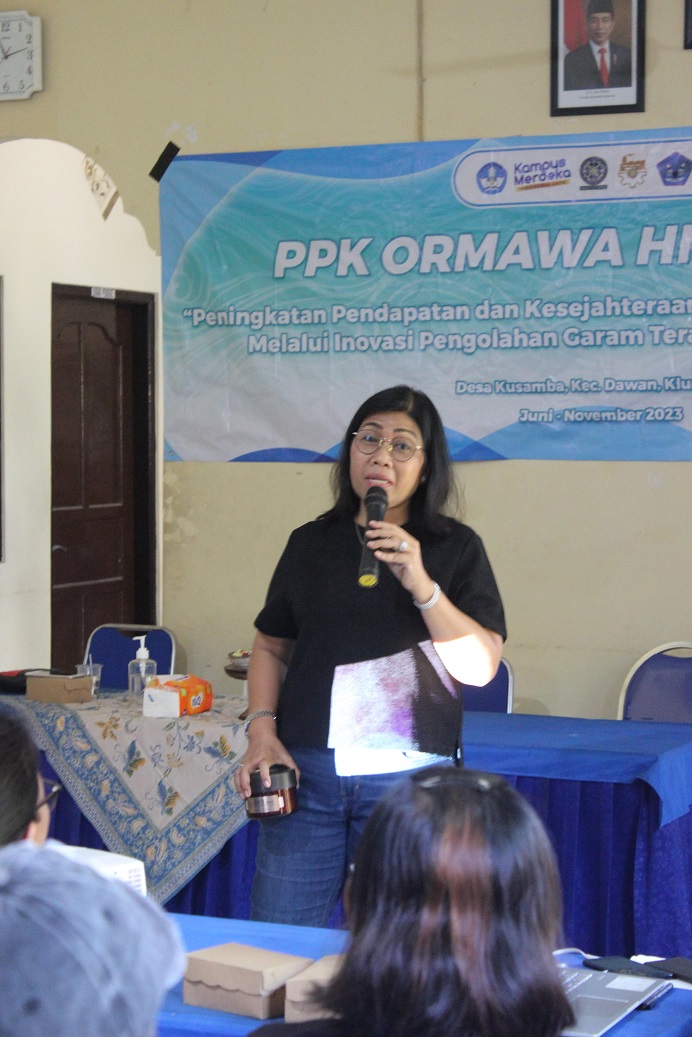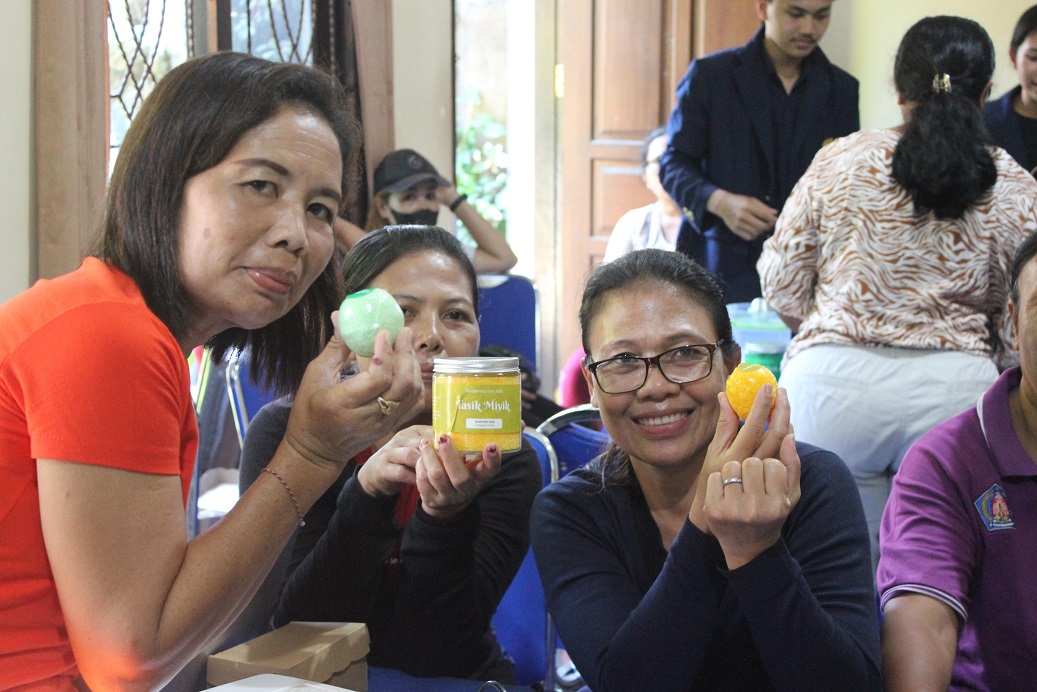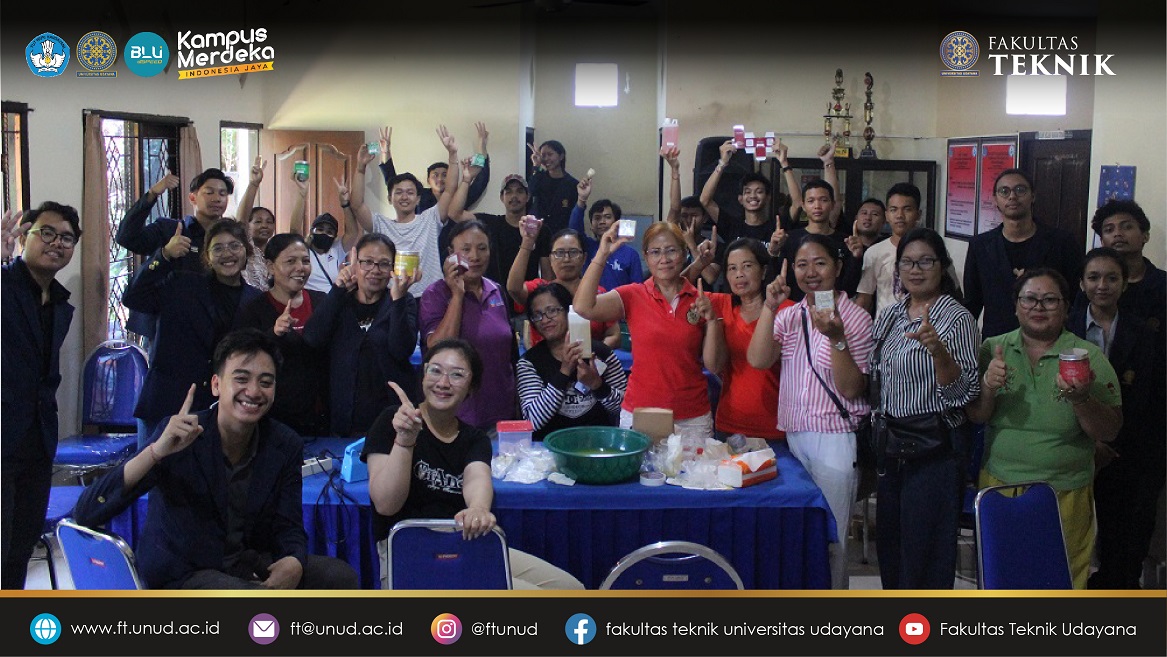Managerial and Marketing Training by PPK ORMAWA HMTIN UNUD for PKK, Karang Taruna and Kusamba Village Cooperative
The Udayana University Industrial Engineering Student Association Capacity Building Program Team (PPK ORMAWA HMTIN) held joint training with the Kusamba Village salt farmer group accompanied by village officials and pilot groups on Sunday (24/09/23) at the Kusamba Village Office, Klungkung. This activity, which was officially opened by the Head of Kusamba Village, was attended by leadership at the university, faculty and study program levels as a form of support for the implementation of the program. Deputy Chancellor III for Student Affairs at Udayana University, Prof. Ir. Ngakan Putu Gede Suardana, M.T., Ph.D., IPU in his speech said that the Village should also guide and accompany the implementing team so that the program can be successful and complete until the end.

The training series began with the presentation of material regarding digital marketing presented by Dr. Ir. Ni Wayan Sri Ariyani, S.T., MM., IPM., ASEAN.Eng. from PT Baliyoni Saguna Group as a partner of PPK ORMAWA HMTIN. Digital marketing material is one of the urgent materials presented because we see the prospects and share of product marketing which are increasingly growing digitally or through social media. Apart from that, various sales prospects and various target platforms that can be developed to disseminate Bath bomb salt and Aromatic Salt products are also explained. Later, the ORMAWA PPK implementation team will provide assistance to target groups and also pilot groups as a form of program sustainability.

This training program creates opportunities for students to contribute to the development of local communities and improve their knowledge and skills in digital marketing. Apart from that, this program also helps to diversify the income of Kusamba Village salt farmers by introducing new products produced by pioneer groups.
The good collaboration between PPK ORMAWA HMTIN Udayana University and Kusamba Village through this training activity is a clear example of how higher education can play a role in developing local communities. It is hoped that similar programs will continue and provide benefits for all parties involved.









